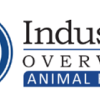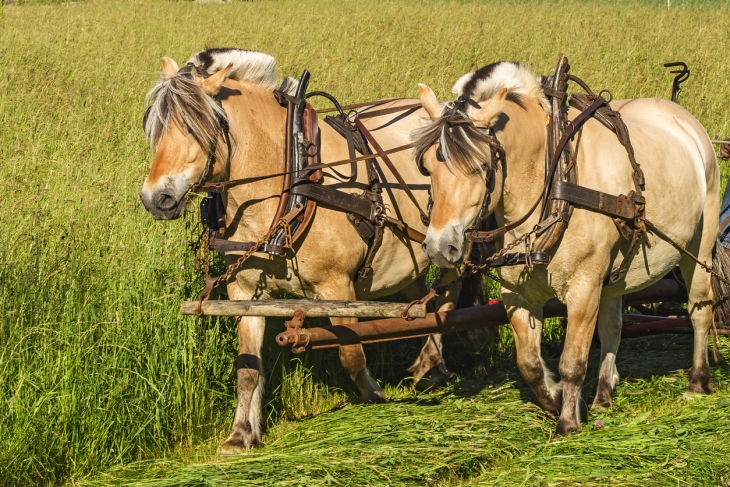Recent Posts
- Building a Robust and Diverse Ecosystem Innovation Ecosystem in the Animal Health Industry
- Cultivating A Champion Culture: Balancing Performance and People in Animal Health
- How Stable are Earnings in Animal Health? Results of the Animal Health Jobs 2025 Salary Survey
- Entry Fees for the Race for Talent: Results of the Animal Health Jobs 2025 Salary Survey
- Looking In The Gift Horse’s Mouth: The Pros and Cons of Counteroffers in Animal Health
Most Popular
-

How Stable are Earnings in Animal Health? Results of the Animal Health Jobs 2025 Salary Survey
-

How Will Artificial Intelligence Change Jobs In Animal Health?
-

News to Know from Brakke Consulting’s 2025 Animal Health Industry Overview
-

Entry Fees for the Race for Talent: Results of the Animal Health Jobs 2025 Salary Survey
-

Building a Robust and Diverse Ecosystem Innovation Ecosystem in the Animal Health Industry
Pulling the Plow: The Word on Workload in the Animal Health Jobs 2024 Attitudinal Survey

Do jobs in animal health keep employees in harness from dawn till dusk? The Animal Health Jobs 2024 Attitudinal Survey revealed that animal health companies are busy places, so knowing how to manage workload is essential. From individual contributors to senior leaders, new entrants to highly experienced animal health professionals, managing workload is important to everyone who wants to maintain a healthy work-life balance.
How heavy is the load?
The newest data from our 2024 Animal Health Jobs Attitudinal Survey sheds light on this important topic. Workloads in animal health are generally manageable, with 80% of respondents reporting that they usually complete their tasks on time and can handle their workload. That’s broadly true across all job levels, and from new entrants to highly experienced animal health professionals.1
Viewed another way, almost one in 5 animal health employees struggle; 15% report that the size of their workload negatively impacts their ability to perform tasks effectively.1 Those most likely to be struggling have between 16 and 25 years of experience – the ones with solid animal health experience who are often found in keystone roles.
Cooperation is the key
Employees who struggle with workload can’t deliver their best, and their company will suffer. Moving from overwhelmed to on top of the work requires cooperation and communication between associates and managers.
Defining the task
We’re all too busy to waste time on work that adds no value. Before setting out to conquer the world in their next project, every associate must understand exactly what they are expected to provide. That may mean asking clarifying questions about scope, timelines, or depth of analysis, and managers must be able to answer them clearly and concisely. This prevents wasted effort and unnecessary busyness.
Setting priorities
No matter how much is on an associate’s desk, everything can’t come first. Project priorities can be based on urgency and importance, or regulatory timelines, or impact on the business - whatever is most appropriate – with some tasks waiting until others are finished. Everyone working on a given project must understand where it fits in their individual workload and the overall priority list. Highly experienced colleagues, like those in the survey who reported feeling workload stress, are particularly at risk of being assigned all of a team’s toughest work; managers can help them with setting priorities or assigning some of these projects to other colleagues.
Checking skills
Whether it’s being Queen of the Spreadsheet or having top selling skills, the right knowledge makes top-quality work possible. Associates who don’t feel that they have the skills they need must speak up. Managers must respond to these requests, whether by sending someone to a course or pairing them with a more experienced colleague. Animal health employees should not be asked to waste energy and effort on something they don’t know how to do.
Flagging potential delays
Sometimes, despite their best efforts, an employee might miss a deadline. The good news is that outside of veterinary clinics, these are rarely matters of life and death. Unexpected delays can be cause for frustration, especially if they come as a surprise to other colleagues. Excellent communication can reduce this aggravation; identifying a problem in advance may allow other colleagues to help. If necessary, associates and managers can reprioritize work.
Reining in the wild workload
Success in animal health requires a deep commitment to improving the lives of animals and their people. Sometimes that means juggling priorities or balancing competing tasks. The most responsible employees understand this, and speak up about risks, skills, and needs, and their managers respond. That’s why so many find their animal health workload manageable as well as important.
For a complete review of the results of our 2024 Animal Health Jobs Attitudinal Survey, download the complete report. See what animal health insiders are saying about company culture in animal health, job satisfaction, and the future of the animal health industry.
---
Top candidates mean top performers. Find experienced animal health insiders who will keep your business running smoothly at Animal Health Jobs. Post your open roles now to find the top candidates in animal health and animal nutrition.
Register for our newsletter to stay on top of the latest jobs and trends in animal health and animal nutrition.
‘Cultural Challenges: Results of the Animal Health Jobs Spring 2024 Attitudinal Survey‘. Published June 2024. Available online: https://animalhealthjobs.com/blog/whitepapers.


Comments